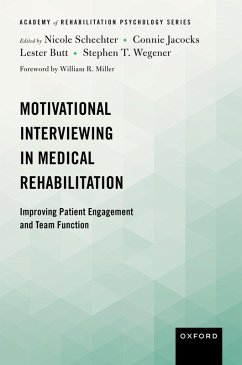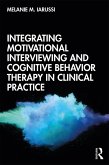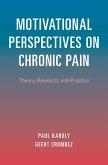Medical rehabilitation and the management of chronic health conditions requires patients to be proactive and engaged in their health care. This need for active partnership between patients and rehabilitation professionals takes place in an evolving health care environment that calls for patient-centered care with a greater focus on patient experience and improved outcomes. Rehabilitation professionals need strategies and tools to build trusting therapeutic alliances, support goal-setting, and promote behavior change to engage patients as collaborative partners. Motivational interviewing (MI) is an evidenced-based approach shown to change behaviors and increase engagement in many patient populations. The foundational concepts and skills of MI emphasize building a collaborative relationship in which the person's autonomy is respected and their personal goals are clarified and pursued, empowering individuals towards goal attainment and independence, consistent with the ethos of rehabilitation settings. The goals of the book are to 1) provide rehabilitation professionals with the knowledge of MI; 2) describe how this approach can be applied by a range of rehabilitation professionals working with persons with a wide range of impairments and chronic health problems; and 3) deliver strategies for implementing MI training and evaluation in rehabilitation settings.
Dieser Download kann aus rechtlichen Gründen nur mit Rechnungsadresse in A, B, BG, CY, CZ, D, DK, EW, E, FIN, F, GR, HR, H, IRL, I, LT, L, LR, M, NL, PL, P, R, S, SLO, SK ausgeliefert werden.









